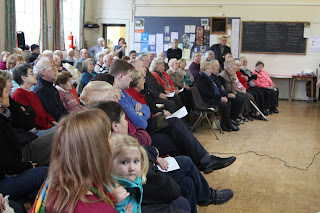Good Neighbours gets funding for its weekly exercise sessions with the Getting Active Through Exercise (GATE) Project. These sessions take place on Mondays (1.30 pm), Wednesdays (1.30pm) and Fridays at 10.00am.
In order to evaluate how useful these sessions are to participants Good Neighbours and GATE cooperated in carrying out a survey of those who attend these classes. A full report of this survey and those carried out at GATE funded exercise classes elsewhere in Manchester will be published late, but the initial findings from the CGN survey are now available
Nearly all the replies gathered through the survey exercise were extremely positive, and has shown that the GATE project classes are a well received, popular service of benefit to the attendees of the classes taking place at Chorlton Good Neighbours. 54 filled in questionnaires out of a possible 65, which is a high response rate (84%)
Attendees ages ranged from 65 to 96, with the average age being 79 which shows you are never too old to exercise

One if four got to the sessions by transport provided by CGN, without which they would have been unable to attend. Many thanks to the volunteer drivers who make this possible
The respondents reported that as a result of attending the classes they had
- confidence in preparing or cooking a light meal (54%)
- increased confidence in walking round the house (53%)
- Confidence doing light housework (48%)
- Confidence going out to do light shopping (41%)
In order of importance they rated the following benefits of coming to the classes:
- greater flexibility (28%)
- spending time with others (17%)
- decreased joint pain (12%)
- greater confidence (11%)
- decreased muscle pain (8%)
- improved strength (7%)
- better sleep (6%)
- increased motivations and more energy (5%)
A large number of respondents have reported increased levels of activity, increased and prolonged mobility and increased confidence in their mobility levels, directly as a result of attending and participating in the GATE project exercise classes.
Also, a large number of respondents have reported that attending the classes has improved their sense of wellbeing, improved their social lives and helped combat feelings of isolation and loneliness. This anecdotal reporting of improved wellbeing and by default, improved mental health, cannot be underestimated and is extremely valuable information for both service providers and commissioners.










































